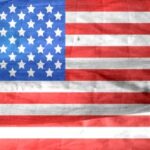TRUMP POLICIES CREATE A BRAIN DRAIN
It only took a few days for the impact to be felt nationwide: Trump policies create a brain drain and one that the United States can’t afford ignore. The question everyone is now asking is to what extent will the brain drain impact U.S. universities and research centers and will top-talent start to look elsewhere for opportunities sooner or later?
BRAIN DRAIN ALREADY IN MOTION

While reports of abuse are still being compiled, there is no question that on Friday, many Muslim students, researchers and faculty members at U.S. universities were impacted by President Trump’s rash decision. For example, a graduate student at Stanford University and legal permanent U.S. resident was detained for several hours at Kennedy International Airport, handcuffed and interrogated. While she was later released, the sobering incident (not the only one to unfold) sent out a clear message: Muslim scholars are no longer welcome in the U.S., even if they are permanent residents, and if they leave to visit family or present research at an international conference, there is no guarantee they will be able to return.
In response, scholars are already organizing nationwide. A statement issued by President Mary Sue Coleman, the President of the Association of American Universities, urged the Administration: “to make clear to the world that the United States continues to welcome the most talented individuals from all countries to study, teach, and carry out research and scholarship at our universities.” As Coleman explained, “It is vital to our economy and the national interest that we continue to attract the best students, scientists, engineers, and scholars. That is why we have worked closely with previous administrations, especially in the wake of 9/11, to ensure our visa system prevents entry by those who wish to harm us, while maintaining the inflow of talent that has contributed so much to our nation.” Coleman also noted that the need to keep America’s borders open is urgent because in many respects, the United States is already falling behind: “Other countries have set the goal of surpassing the United States as the global leader in higher education, research, and innovation. Allowing them to replace this country as the prime destination for the most talented students and researchers would cause irreparable damage, and help them to achieve their goal of global leadership.”
As of Sunday, over 3000 scholars nationwide, including over a dozen Nobel Laureates, had already signed a petition denouncing President Trump’s actions and drawing attention to the potentially devastating effects his polices will have on U.S. universities and research centers moving forward.
TRUMP POLICIES CREATE A BRAIN DRAIN FOR UNIVERSITIES AND RESEARCH CENTERS
To appreciate how Trump’s policies create a brain drain for universities and for U.S. based research centers, including in the medical sector, consider the following account. On the Chronicle of Higher Education, an anonymous post from a graduate director clearly outlines the complexity of the problems that lie ahead for U.S. researchers and the contradictions inherent in the current administration’s approach:
If you have an Iranian Ph.D. student in your laboratory who went home on the winter holidays and is stuck in Iran now, you are screwed in getting your US government funded research done since the expert working on the project can not return. We have a graduate student in our program with a passport from Yemen who has never been to Yemen since her parents are long time refugees. This student now has to cancel her travel to an international meeting to present US government funded research because she could not reenter the USA when the conference is over under this order. We have another student (Iraqi) who is funded via a US government fellowship for Iraqi academics in order to build the infrastructure of Iraq and foster western ideology. She (and her Ph.D. advisor) are in a particularly weird position. She is in the USA at the behest (and funding) by the US government, but can not travel home to visit family since she could not reenter. (1)
What should U.S. researchers expect over the coming four years? It seems likely that the U.S. research centers and top-ranked graduate schools will increasingly lose talent to other nations, including neutral nations, such as Canada and Sweden. Second, it seems likely that some research teams will lose current talent (e.g., due to visa restrictions). Third, it seems likely that presenting at international conferences will become increasingly challenging; over time, this has the potential to impact scientific research by curtailing international collaborations.
ADVICE TO FOREIGN NATIONALS
 There is no question that foreign nationals working in the United States on TN1, H1B, or J category visas and even Green Cards can no longer assume that the terms of their visas and residency status will hold. Despite a statement from the Administration on Sunday, January 29, 2017 that Green Card holders will be protected, the unsettling and rash decisions made on January 27 through future travel plans for foreign nationals into question. Obviously, anyone President Trump’s list of 7 nations should be especially cautious. There is concern, however, that moving forward other foreign nationals will also be impacted (e.g., those who obtained Green Cards through gay marriage following the rejection of the Defence of Marriage of Act). For now, foreign nationals working in the United States are encouraged to register with their foreign embassy, contact their university’s legal counsel for advice, and at least for the coming months, avoid foreign travel. U.S. citizens working in higher education are encouraged to step up for their foreign colleagues and do everything possible to ensure that Trump policies do not create an unstoppable brain drain.
There is no question that foreign nationals working in the United States on TN1, H1B, or J category visas and even Green Cards can no longer assume that the terms of their visas and residency status will hold. Despite a statement from the Administration on Sunday, January 29, 2017 that Green Card holders will be protected, the unsettling and rash decisions made on January 27 through future travel plans for foreign nationals into question. Obviously, anyone President Trump’s list of 7 nations should be especially cautious. There is concern, however, that moving forward other foreign nationals will also be impacted (e.g., those who obtained Green Cards through gay marriage following the rejection of the Defence of Marriage of Act). For now, foreign nationals working in the United States are encouraged to register with their foreign embassy, contact their university’s legal counsel for advice, and at least for the coming months, avoid foreign travel. U.S. citizens working in higher education are encouraged to step up for their foreign colleagues and do everything possible to ensure that Trump policies do not create an unstoppable brain drain.
(1) “Academics, What Does Trump Order on Immigration Mean to You?” Jan. 28, 2017 Chronicle of Higher Education, http://www.chronicle.com/article/Academics-What-Does-Trumps/239037
Additional Reading
Interview
Related q/a
- Hello! I am curious to know What courses one should take to become a Warfare Historian?And then the degree requirements to teach for this as well please. Any information or insight would be greatly appreciated. Thanks????
- I would like to become a foreign language teacher, and I was wondering if it was possible that I could teach multiple languages at one school?? I most likely would want to teach Spanish and French, and I know I can be certified in both, but can I teach both at the same public high school? I know there are teachers in my public high school that teach more than one course, like at different periods throughout the day, but not any language teachers.
- Hello! I am curious to know What courses one should take to become a Warfare Historian?And then the degree requirements to teach for this as well please. Any information or insight would be greatly appreciated. Thanks????
- I’ve done my Master’s in Computer Science and Engineering, and I’m interested In Teaching College Level Courses



